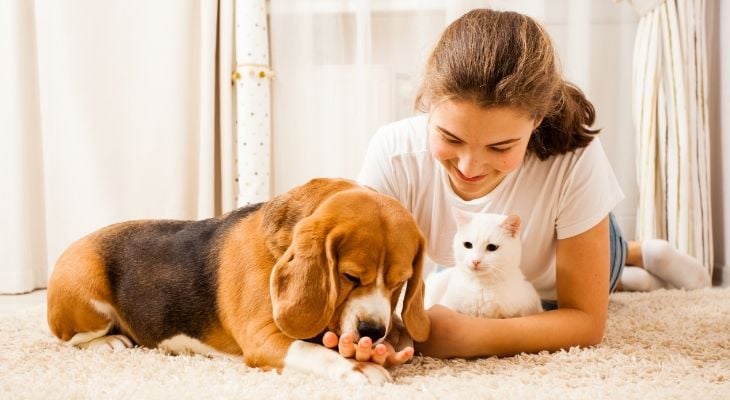Snakebites are not limited to humans, nor is it limited to any specific region of the world. Taking precautions to minimize the occurrence is first and foremost, but knowing what signs to recognize can keep your horse from developing serious or fatal health concerns from snakebite. Possible Signs of
Read more

Prepare your house for your pet's arrival. A special place should be designated for it to eat, sleep, and eliminate. Obtain any necessary accessories (eg, collar, leash, ID tag, crate, cage, aquarium and dishes) before you bring your pet home. For most pets, you will need to pet-proof your home just as you would child-proof your home to avoid accidents. Harmful cleansers, plants, electrical cords, and breakable objects should be kept out of reach. Open windows should be screened.
Roaming pets are prime candidates for fights with other animals, traffic accidents, and communicable diseases from other animals. Their life span can be expected to be considerably shorter as a result.
Most pets are strictly indoor pets and are perfectly content, as long as they have access to food and fresh water at all times. AVMA strongly recommends that for a healthier, happier pet you consider keeping your pets indoors only. If your pet must go outside, make sure you know where it is at all times, that the pet is old enough to manage on its own, that it is identified in some fashion (microchip ID or breakaway collar and tag), current on vaccinations, and not outdoors in extremely cold, hot, or inclement weather.
If you don't want your pet in certain areas of the house, start training it immediately to avoid those areas. When choosing where your pet will sleep, keep in mind some pets are nocturnal animals and will be active at night. Placing soft bedding materials in secluded corners will help your pet to feel at home.
-
Preventing Snakebites
Category: Newsletter Library, Equine
-
No Sweat: It's a Problem
Category: Newsletter Library, Equine
Horses, like humans, sweat to cool themselves in warm weather and during periods of exertion. In hot climates, especially humid ones, failure to sweat often means that they are prone to over-heating and cannot be worked. This condition is called anhidrosis. It is unknown what causes anhidrosis and treatment
Read more
Locations
Office Hours
24 Hour Emergency Care - 365 Days a Year
8:00 am - 4:30 pm
8:00 am - 4:30 pm
8:00 am - 4:30 pm
8:00 am - 4:30 pm
8:00 am - 4:30 pm
Emergencies Only
Emergencies Only

